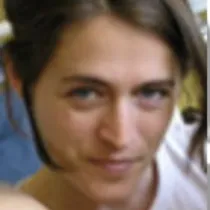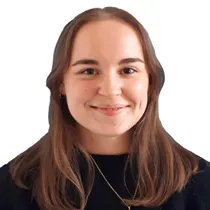Presentation

Known as the main microtubule organizing center of animal cells (MTOCs), the centrosome participates in the organization of the microtubule network within the cell. It is formed of two centrioles surrounded by a structured matrix of proteins called the pericentriolar material (PCM).
Twitter: @basto_lab
While the centrioles are involved in the recruitment of the proteins that form the PCM this last one will hold the property of nucleating and anchoring microtubules (MTs). Thanks to this capacity centrosomes can regulate several processes both during interphase and mitosis. During interphase they influence cell shape, motility, polarity and intracellular transport. In addition, the older of the two centrioles can also function as a basal body seeding the growth of cilia or flagella. During mitosis, they contribute to the formation and orientation of the mitotic spindle. Therefore, the number of centrosomes per cell is tightly regulated, and in normal conditions one or two centrosomes are present depending on the cell cycle stage. Centrosome alterations (in number and/or structure) are known to compromise several cellular processes and are associated with several human disorders. Work in our lab uses a variety of model systems to investigate centrosome function in development and disease.
In neural stem cells (NSCs), the two centrosomes display asymmetric behavior and asymmetric PCM content and MT nucleation during interphase. Centrosome asymmetry has been implicated in asymmetric cell divisions. Centrosome positioning allows the accurate alignment of the mitotic spindle along the polarity axis. This contributes to proper cell fate determinant segregation and correct daughter cell positioning within the tissue. We are currently investigating how defects in centrosome biogenesis can lead to centrosome asymmetry defects.
Cells normally contain an euploid and diploid genome, composed by two copies of each chromosomes. To ensure appropriate transmission of the genetic material, high-fidelity DNA replication and mitosis are required. Variations in the normal ploidy are referred to as aneuploidy (gain or loss of whole chromosomes) and polyploidy (gain of multiple sets of chromosomes). Non-physiological alterations in chromosome number are well-established contributors to human disorders: they are responsible of a high percentage of miscarriages and a panel of diseases including Down syndrome, developmental disorders and cancer.
In our lab, we are interested in the mechanisms at play when aneuploidy and polyploidy are induced in cycling cells in vivo. The karyotype of Drosophila comprises only four copies of chromosomes, rendering it a very amenable model to study chromosome number defects. By using a combination of genetics, fix and live imaging, cell biology and molecular biology techniques we are exploring the consequences of polyploidy in the brain and epithelial tissues of Drosophila.
Deciphering the place of centrosome dysfunctions in the etiology of human disorders is an active field of fundamental research investigation and one of our main interests. To tackle this question, we have focused our attention on centrosome amplification, a dysfunction characterized by the presence of supernumerary centrosomes, and initially described as a main feature of cancer only. We have generated a mouse model where centrosome amplification is triggered in a conditional manner in any tissue or stage of interest.
We have shown that the presence of extra centrosomes in proliferating embryonic neural stem cells is sufficient to impair brain development and culminates in microcephaly (small brains) at birth. We found that centrosome amplification triggers mitotic defects and the generation of a progeny with an abnormal karyotype (aneuploidy) unable to survive in the context of a developing brain. Further we showed that elimination of aneuploid cells is dependent on the activity of p53. This study enabled us to propose mitotic defects, aneuploidy and consequent cell death as a new etiology of Human Primary Recessive Microcephaly (MCPH). Centrosome mutations are frequently found in MCPH families and the reason why the mammalian brain is so vulnerable to centrosome mutations is an active area of research in our lab.
In collaboration with the Institut Curie hospital, we are currently investigating origin and consequences of centrosome abnormalities in epithelial ovarian cancers (EOC). Ovarian cancer is the fifth most common cause of death in women of the western world due to poor prognosis associated with late detection. Mutations in p53, BRCA1 and chromosome instability are frequently associated with ovarian tumour development, but little is know about the cytoskeleton organisation in this type of tumours. We aim to identify the involvement of MT related processes in ovarian cancer development to understand the contribution of centrosomes and the MT cytoskeleton to ovarian cancer establishment and development.

























